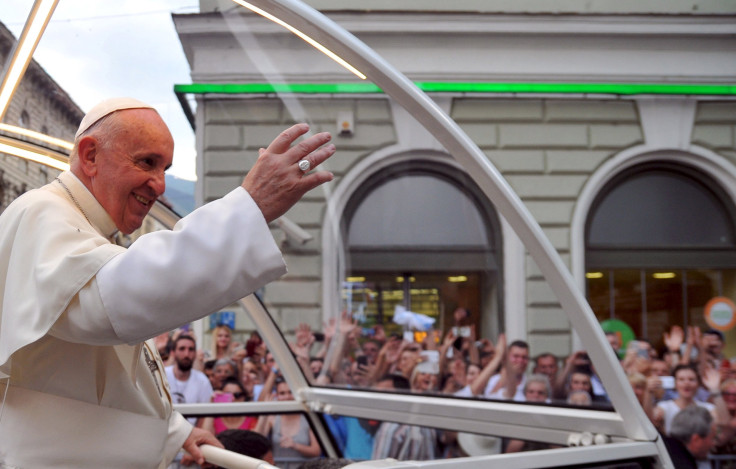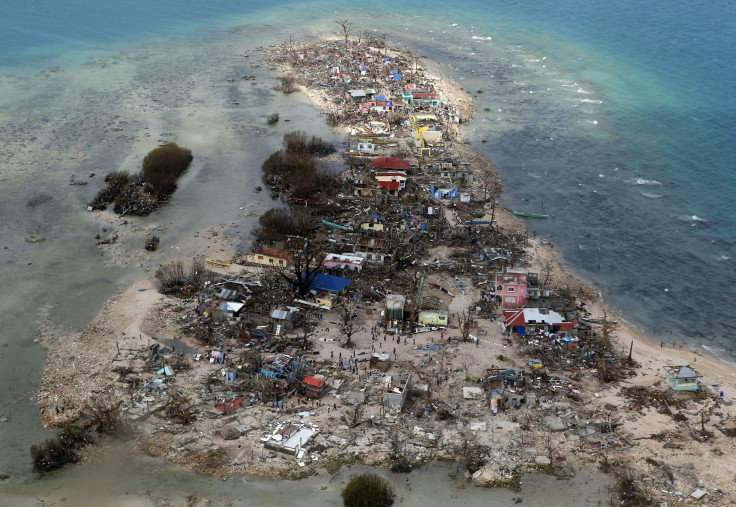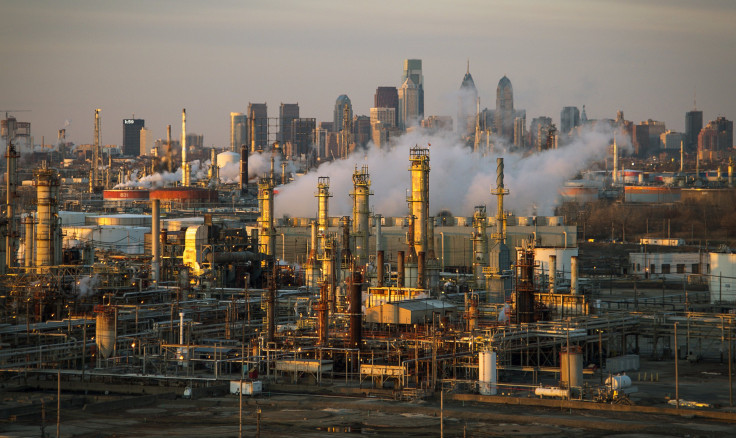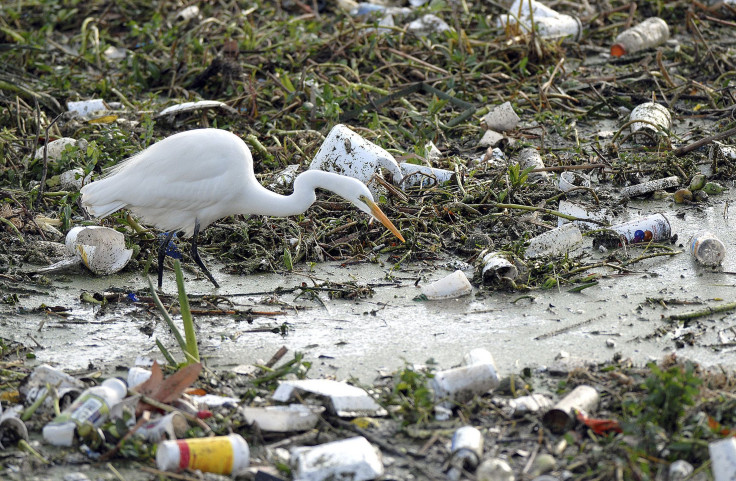Four Themes To Expect From Pope Francis' Climate Change Encyclical

Pope Francis is set to unveil a much-anticipated encyclical on climate change this week. The letter is expected to urge the world’s 1.2 billion Roman Catholics -- and everyone else -- to preserve the environment and protect communities from pollution, a rise in sea level, extreme weather and other climate change consequences.
The pope’s encyclical, which is titled “Laudato Sii" (“Praise Be To You”), aims in part to diminish the skepticism and partisan rancor that defines today’s climate change debate -- particularly among religious and political conservatives. Francis will frame climate action as a moral responsibility to protect God’s creation and our neighbors, observers say.
“A Christian who does not protect creation, who does not let it grow, is a Christian who does not care about the work of God,” the pontiff said in a February address. “And this is the first response to the first creation: protect creation, make it grow.”
Pope Francis will issue the encyclical Thursday in the form of a letter to bishops worldwide. The document’s name comes from a prayer by St. Francis of Assisi -- the pope’s namesake -- that praises elements of God’s creation, including fire, the moon and Mother Earth, Vatican officials said.
The encyclical’s release deliberately coincides with ongoing global climate negotiations. Leaders from nearly 200 nations are meeting throughout the year and have agreed to forge a sweeping emissions agreement at talks in Paris this December. Last year, Francis expressed frustration with the outcome of the 2014 conference in Lima, Peru, insisting that leaders could have done more to tackle climate change.
“While the pope is not a politician, he has a global pulpit and can help reframe and move this conversation in a way that politicians in Washington can’t,” said John Gehring, the Catholic program director for Faith in Public Life, a religious advocacy organization in Washington. “The pope is going to be calling us to something deeper than policy and politics,” Gehring added. “He’s calling us to rethink our relationship with each other and the environment.”
Four themes Thursday's encyclical could address include:
1. Economic inequality and environmental destruction are inextricably linked.

Pope Francis has made poverty-related issues the central focus of his first two years in the papacy. Last year, he called for governments to redistribute wealth and benefits to the poor and to curb the “economy of exclusion” that allows some groups to flourish while others suffer.
His encyclical will likely point to how environmentally destructive activities -- such as emitting carbon, contaminating water and clearing forests -- can further exclude certain communities from economic prosperity.
“He’s going to follow on the idea of human ecology that Pope John Paul II talked about: the intersection between human lives and the social world with the environment,” said Celia Deane-Drummond, a professor of theology who specializes in environmental ethics at the University of Notre Dame.
2. Rich countries are morally obligated to help the poor.

In a similar vein, the pope will likely call on wealthy countries to protect poor communities -- especially since industrialized nations are responsible for the bulk of historic climate-changing pollution.
“Poor people, both in the U.S. and all around the world, suffer most from the consequences of climate change, yet participate very little in the problem,” said Rev. Canon Sally Bingham, an Episcopalian and president of Interfaith Power & Light. “I believe he plans to point out the inequity in that.”
The United Nation’s climate panel warned last year that vulnerable groups -- such as people who live in slums, subsistence farmers and day laborers -- are especially at risk because they have fewer resources to cope with the changing climate. Violent storms, coastal flooding, staggering heat waves and enduring droughts are all easier to survive if your house is sturdy, your work is done indoors or you can afford to move.
The pope said last week that climate change is related to the “forced displacement of peoples and to the many humanitarian tragedies” around the world related to lack of water and food.
3. Consumers must ditch their wasteful, harmful habits.

Francis also railed against consumerism, calling it a “cancer of society.” The pope spoke at a June 11 conference of the U.N.’s Food and Agricultural Organization, where he lamented that one-third of food products go unused and end up as waste. In earlier speeches, he has criticized the “culture of the disposable.”
Francis also called on individuals last week to make small adjustments in their daily lives to reduce the amount of food, water, clothes and other resources they consume. “Let us make a more decisive commitment to change lifestyles,” the pope said.
On the same note, the encyclical will likely implore Catholics and others to take steps to reduce carbon footprints. “We think we’re only one individual,” Deane-Drummond said. "‘What could I do to make a difference?’ Pope Francis will insist that we all have a responsibility to act. We should do it out of love of creation, love of God and love of neighbor.”
4. Fighting climate change praises God’s creation.
The encyclical’s name, “Praise Be To You,” signals the papal letter “is going to be a message of joy and hope -- not a depressing account of all the things we’ve done wrong,” Deane-Drummond said. “He’s going to try and encourage people by example, living simply and sustainably and in solidarity with the poor.”
She said the message is particularly important because, although the majority of Americans believe that climate change is happening, many feel powerless to fight it. About 63 percent of Americans now say they believe global warming is real, researchers from Yale and Utah State universities found. However, less than half say they think humans are to blame for rising temperatures.

Rev. Bingham said she hopes the pope’s message with resonate with politicians, corporate executives, utility commissioners and other leaders who make decisions about how we produce and use energy. She noted that nearly one-third of U.S. congressional lawmakers are Catholic, while more than half are Protestant Christians.
“If the pope can make a statement that convinces some of the people in Congress that have been denying it’s a problem for so long, that’s huge,” she said. “Maybe we’d get some legislation around greenhouse gas reductions.”
Andy Hoffman, who directs the University of Michigan’s Erb Institute for Global Sustainable Enterprise, said Pope Francis’ encyclical could give Republicans the “political cover” to embrace climate science and endorse policies that address the problem.
“It’s important that this come from someone like the pope. The messenger is as important as the message,” he said. “No one will have more credibility saying it’s a moral issue than the pope.”
Yet Francis' efforts to elevate climate change as a moral concern are unlikely to resonate with at least some U.S. conservatives. A handful of U.S. lawmakers have already accused the pope of politicizing the papacy and misleading Catholics. Rick Santorum, a former U.S. senator from Pennsylvania and Republican presidential candidate who is a practicing Roman Catholic, urged Pope Francis to “leave science to the scientists” and instead focus on “theology and morality.”
The Heartland Institute, a libertarian think tank, convened a panel of skeptical scientists in Rome this spring to coincide with the pope’s own summit in the Vatican, where Catholic leaders met with global climate scientists and U.N. Secretary General Ban Ki-moon.“Though Pope Francis’ heart is surely in the right place, he would do his flock and the world a disservice by putting his moral authority behind the United Nations’ unscientific agenda on climate,” Joseph Bast, the group’s president, said at the time.
Still, Hoffman said the tide of public opinion is steadily shifting away from skepticism and toward a broad acceptance of the climate science. “There’s momentum building, and there’s a dam about to burst,” he said. “This is going to be a big game changer.”
© Copyright IBTimes 2025. All rights reserved.




















